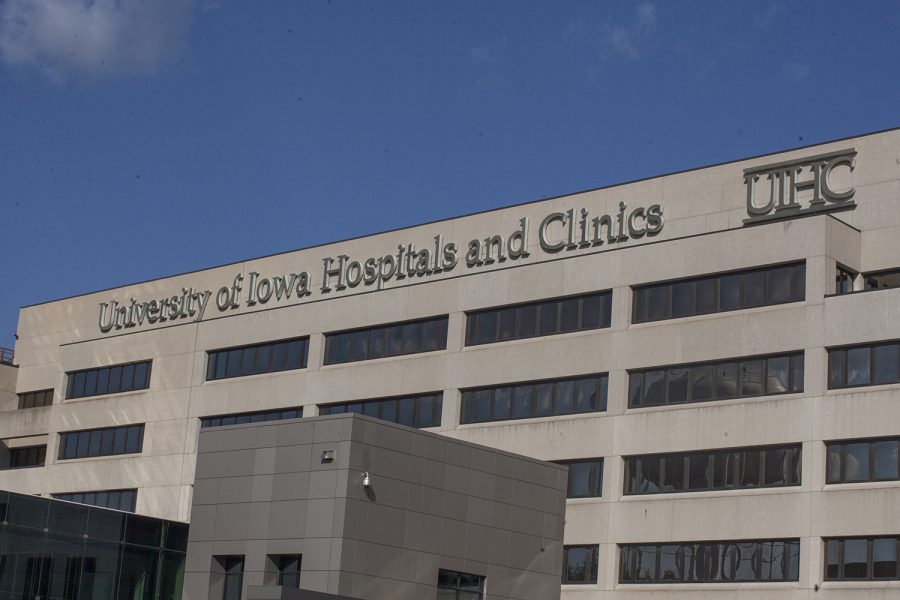Cases of HPV-related cancers to increase in 2019, report says
The State Registry of Iowa released the Cancer in Iowa 2019 report last week, and medical professionals have seen a rise in HPV-related cancers above other cancers.
University of Iowa Hospitals and Clinics as seen on Sept 17, 2018.
March 13, 2019
While many cancer rates in Iowa have stayed the same in the past year, medical professionals have seen an increase in the number of cancers caused by the human papillomavirus.
The Cancer in Iowa Report, issued on March 5 by the State Registry of Iowa, estimated the number of new cancers and cancer-related deaths for 2019, as well as information on HPV-related cancers and what can be done to prevent them.
Medical professionals in the state are seeing increases in the number of cases of melanoma, as well as oropharyngeal, or throat, cancers caused by HPV, University of Iowa Assistant Professor of epidemiology Mary Charlton said.
RELATED: UI researchers prevent nerve damage for chemotherapy patients
After the introduction of Pap testing for women in the 1940s, doctors were able to discover abnormal cell growth because of HPV before the cells become cancerous, causing a decrease in cervical cancer, Charlton said.
Along with causing cervical cancer, HPV can cause throat, vaginal, anal, and penile cancers. There is currently no way to screen for HPV-related cancers other than cervical cancer, she said.
“The throat, the oropharyngeal cancer in males, has surpassed the rates of cervical cancer in females,” Charlton said. “So I think if you put them all together, males versus females, the rates of HPV-related cancers are pretty close, but they’re increasing far more dramatically in males.”
RELATED: UIHC focuses on treating cancer with Vitamin C
HPV is the most common sexually transmitted disease in the U.S. However, the disease can be prevented through receiving a vaccination that’s most effective between the ages of 9 and 11, Charlton said. It’s best to receive the vaccine before the age of 26, but the FDA recently approved the vaccine for people up to the age of 45, she said.
According to the report, the HPV vaccination rate was 38 percent in 2017.
HPV-related cancers account for more deaths than do diseases for which children receive mandatory vaccinations, said Nathan Boonstra, a UnityPoint pediatrician. When measles was common, it caused 400 to 500 deaths a year. HPV-related cervical cancer alone causes 4,000 deaths a year, he said.
“We’re talking about cancers that happen 10, 20, 30, 40 years down the line, and so we really have to be thinking forward for these kids to help give them not only a healthy childhood but a healthy adulthood as we can,” Boonstra said.
That HPV is an STD makes parents more hesitant to vaccinate their children during the ideal age, Boonstra said. It’s important for pediatricians to educate parents on what the vaccine is and stress that it prevents cancer, he said.
HPV-related throat cancer can cause many complications, such as damaging of a person’s vocal cords and taste buds, said Jon Scharingson, a patient who had HPV-related throat cancer. The chemotherapy Scharingson went through caused those complications with his throat, he said.
Scharingson went through numerous surgeries, including biopsies, tonsil removal, the insertion and removal of a feeding tube, and three procedures to widen his esophagus after it became restricted because of the radiation therapy, he said.
“Nobody wants to see their children go through [cancer treatment] if they don’t have to,” Scharingson said. “It’s no different from getting your child a measles or tuberculosis vaccination. If there’s a vaccination out there that’s proven and it’s safe, and there’s no risk, why wouldn’t you get the vaccination?”






